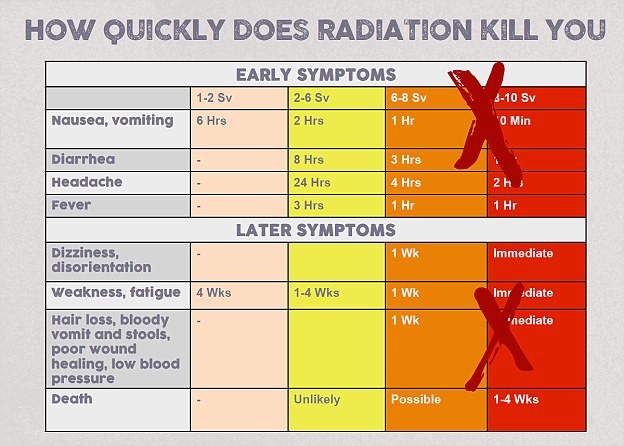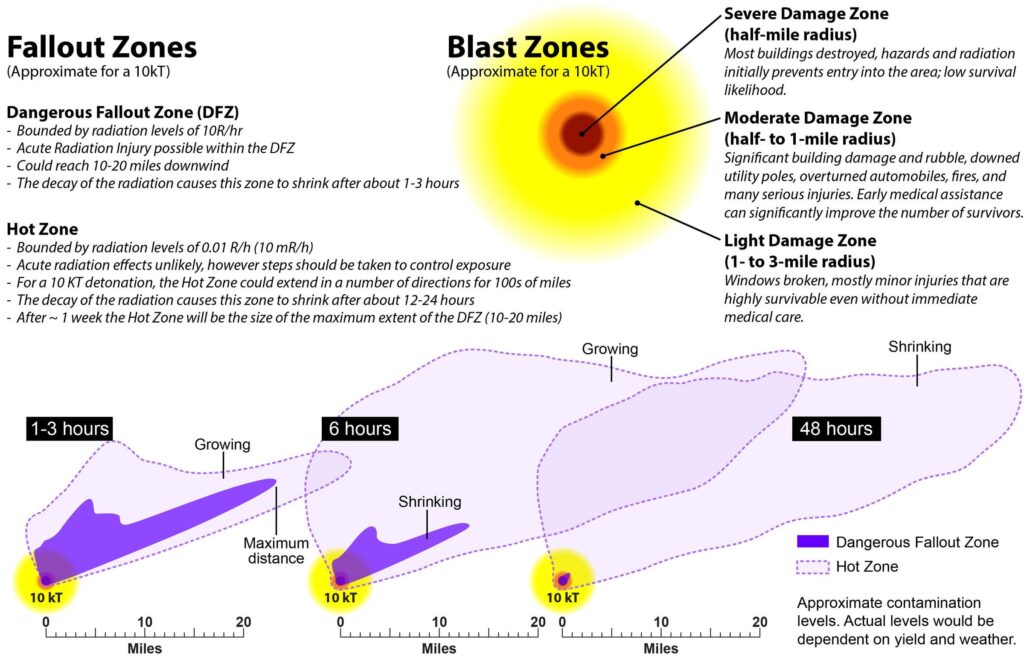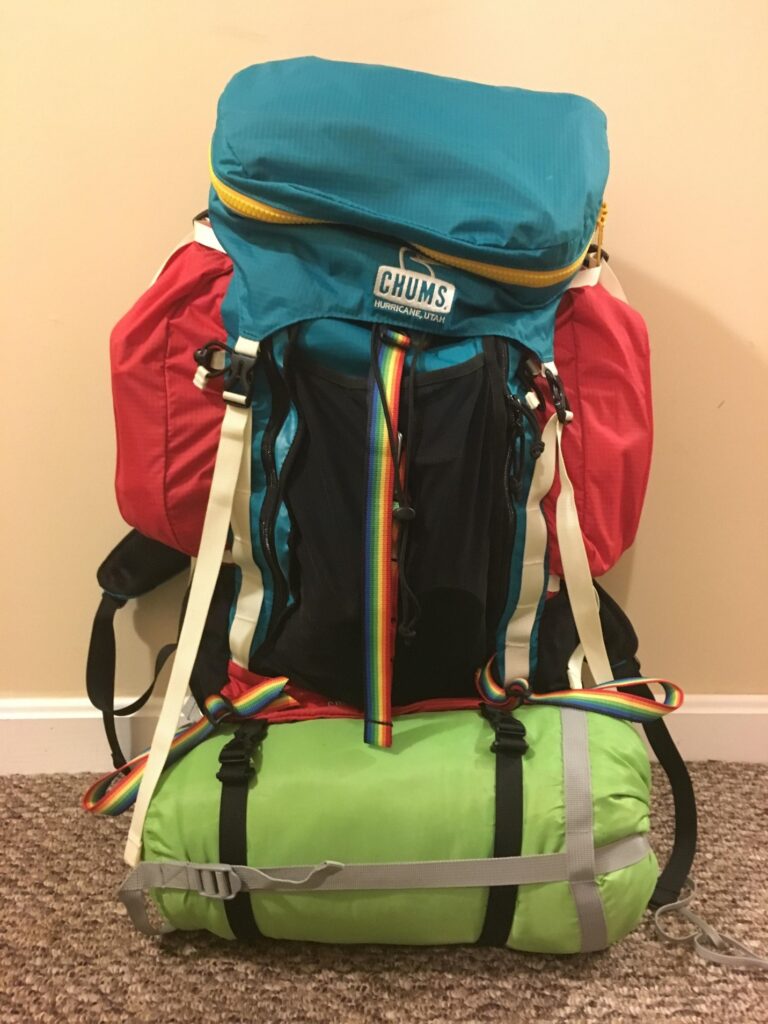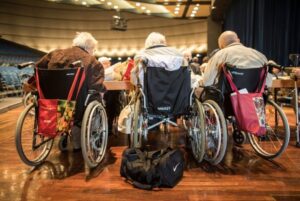The threat of nuclear war has been on many people’s minds lately. Between the increased aggression from China, North Korea and Russia, it stands to reason that most of us are feeling a little nervous about what might come next. Could you really prepare for a nuclear blast?
Fortunately, if you live in an area that is at risk for being hit by a nuclear bomb, there are some things you can do to increase your chances of survival in the event of such a nuclear blast.
What is a Nuclear Blast?
Could you really survive a nuclear blast? It depends on how far you are from the nuclear blast radius. A nuclear bomb is an explosive device that uses the energy from a controlled nuclear chain reaction to generate an enormous amount of destructive power.
A nuclear blast occurs when a nuclear bomb detonates, destroying everything in the area in a matter of minutes or seconds. A large fireball and a mushroom cloud of dust and particles are created when a nuclear bomb explodes. The fireball reaches temperatures of up to one million degrees, generates seismic shock waves, creates flashes similar to lightning, and generates intense radiation.
When the mushroom cloud settles, radioactive material is dispersed into the air. Fallout occurs when particles of dust and radioactive material are deposited on the earth by the cloud. Fallout can contaminate the air, soil, food, and water if the wind carries it.
What are the Health Effects of a Nuclear Blast?
Blast, heat, and radiation comprise the three forms of energy released in a nuclear explosion. A nuclear explosion releases enormous amounts of energy in the forms of blast, heat, and radiation.
The explosion’s blast kills people close to ground zero and causes lung damage, ear injury, and internal bleeding in people farther away. Flying objects and collapsing structures injure people. Everything near ground zero is vaporized due to the extreme thermal radiation.
In addition to severe burns and fires, people in underground shelters are at risk of dying from lack of oxygen and carbon monoxide poisoning due to excessive heat.

What is Radioactive Fallout?
If you survive the initial blast, what can you do to survive the minutes, hours, days, years that follow?
When a nuclear explosion or reactor accident causes radioactive fallout to enter the atmosphere and then descend to Earth, it is known as radioactive fallout. These fallout particles are tiny and consist of dust, dirt, and other debris. Fallout, both material that has fallen to Earth and material that remains suspended in the atmosphere, refers to radioactive particles that are released into the atmosphere as a result of a nuclear blast or reactor accident.
How dangerous is radioactive fallout? It’s hard to say, as the amount of fallout will vary based on the type of bomb and its intended target. Factors that determine the degree of risk include the weather (wind, rain, etc.), the type of soil in the area, and the direction from which the bomb is coming from.

The radioactive particles will not travel very far (especially in high winds or if the particles are heavy), and you should be able to avoid them simply by staying indoors.
There are, however, other factors to consider as well, including the degree of radioactivity, which will depend on whether the fallout is from an atomic bomb or a hydrogen bomb; the potential side effects of exposure to the fallout; and the likelihood of contamination.
Fallout is most dangerous in the first few hours after the blast when it is giving off the highest levels of radiation. It takes time for fallout to arrive back to ground level, roughly more than 15 minutes for areas outside of the immediate blast radius. This is enough time for you to be able to prevent significant radiation exposure.

How Can You Protect Yourself and Your Family?
So if the radioactive fallout starts to come down within 15 minutes, you may not have the time to get home. You will be glad to have your Get Home Bag in your vehicle ready to take shelter when away from home.
The explosion could be near you or far away, but you should take safety precautions no matter where it hits.
To avoid being harmed by fallout if you see a nuclear blast in person, cover your eyes and turn away. Lie flat until the fire and shock waves are gone. If you are outside when the blast happens, cover your mouth and nose with a cloth or towel.
Remove contaminated clothing and wipe off or wash unprotected skin if you were outside after the fallout arrived. Avoid touching your eyes, nose, and mouth, if possible. Shampoo your hair if possible, but do not use conditioner. Hair conditioner can bind radioactive particles to your hair.
Go to the basement or middle of the building -Brick or concrete are best. Stay away from the outer walls and roof. Close the windows, turn off the ventilation system, and stay toward the center of the house or building.
If possible, wear a mask if you’re sheltering with people who are not a part of your household.
Stay inside for 24 hours unless local authorities provide other instructions. Family should stay where they are inside. If you are separated, reunite later to avoid exposure to fallout radiation.
For more information on how to prepare your home to shelter in place, follow this link to READY.GOV.

When you learn that a nuclear detonation has
occurred, tune a radio to your local emergency-broadcasting network and listen
for instructions.
Battery operated and hand crank radios will function after a nuclear blast. Tune into any station available for official information such as when it is safe to exit and where you should go.
Don’t plan on sending a text message. Cell phone, text messaging, television, and internet services may be disrupted or unavailable.
Tip: With one eye closed, raise your thumb up the mushroom cloud and look. If the cloud is larger than your thumb then you are in the nuclear fallout zone, meaning you are exposed to radiation and need to seek some type of new shelters.
Be Prepared Before the Threat
Identify the best protection location near your home, office, or school. You should identify areas near your home, place of work, and school with the greatest amounts of protection. Outdoor areas, vehicles, mobile homes, and outdoor areas do not provide adequate protection. Look for basements or center of large multistory buildings to seek cover.
If you work outside your home, have ready food, water, medicines, flashlights, and extra batteries for your Get Home Bag for areas you frequent and in which you might have to stay for 24 hours. It is possible to keep your supplies for three or more days, if possible.
If radioactive fallout is expected in your area, you should wear a protective mask to avoid breathing the radioactive particles. The best masks for this are N-95 respirator masks, which can be purchased at any medical supply store, along with gloves and goggles.
You should also avoid using water from the tap, since it could become contaminated with radioactive particles. Gather up all food and water you have on hand and seal it tightly in bags or containers.
Protect yourself from radiation
If you are in an area that might experience fallout from a nuclear blast, you can reduce the amount of radiation that reaches your body by having a source of clean air, like an air filter or a respirator mask. – Stay indoors: The best way to protect yourself from radiation is to stay indoors and away from windows. – Cover your skin: Clothing can protect your skin from radioactive particles. – Cover your mouth: You can also cover your mouth with a cloth to reduce your exposure to radiation. – Stay in your home: Stay in your home with the doors and windows closed. – Make sure your home is clean: Clean your home regularly to get rid of any radioactive particles that may have gotten inside.
Build an Emergency Kit
One of the best ways to prepare for a nuclear blast is to make sure you have an emergency kit on hand at all times. Ideally, your kit should be large enough to hold enough supplies to last you and your family for at least 72 hours. There are some basic supplies you should have in your emergency kit.
Recommended Supplies
- Water and water filtration system
- Non-perishable food for several days
- Extra cell phone battery or charger
- Battery-powered or hand crank radio that can receive NOAA Weather Radio tone alerts and extra batteries
- Matches and other fire starters
- Flashlight and extra batteries
- First aid kit
- Whistle to signal for help
- Dust mask, to help filter contaminated air
- Contractor garbage bags (can be used as emergency shelter)
- Local maps (If you are a AAA member, you can get them free online)
- Change of clothes (not a suitcase full)
- Compass
- Multi-purpose tool
- Important family documents in a portable waterproof container; more information here: Personal Documents – Don’t Evacuate Home Without Them
That said, it is always a good idea to keep an eye on the news and be ready for any natural disaster, terrorist attack, or even a cyber attack, that could disrupt the flow of essential services such as electricity, water, and food. In an emergency, you will need to take care of yourself and your family, and have a way to sustain yourselves for a period of time.

Your emergency kit should include food and water, first aid supplies, and things like flashlights, whistles, a portable radio, and a map of the area. It is also important to have a tool that can open things like jars and doors, which may have been affected by the blast. It is a good idea to keep these things in a bag that you can easily carry around with you.
Fore more information, READY.GOV has a great 2 page .pdf called, Be Prepared for a Nuclear Explosion. Follow this link to download your copy today.
Summary
A nuclear blast is an explosion caused by the detonation of an atomic bomb. A variety of factors can affect the degree of risk of radioactive fallout, including the weather (wind, rain, etc.), the type of soil in the area, and the direction from which the bomb is coming from. In the event of a nuclear blast, you should avoid windows, doors, and walls, stay away from anything that could break or shatter, lie on the ground, and cover your head and face with your hands. It is important to stay in your home and avoid traveling by car. You should stay in the dark and avoid looking
Keep in mind that we may receive commissions when you click our links and make purchases. However, this does not impact our reviews and comparisons. We try our best to keep things fair and balanced, in order to help you make the best choice for you.

